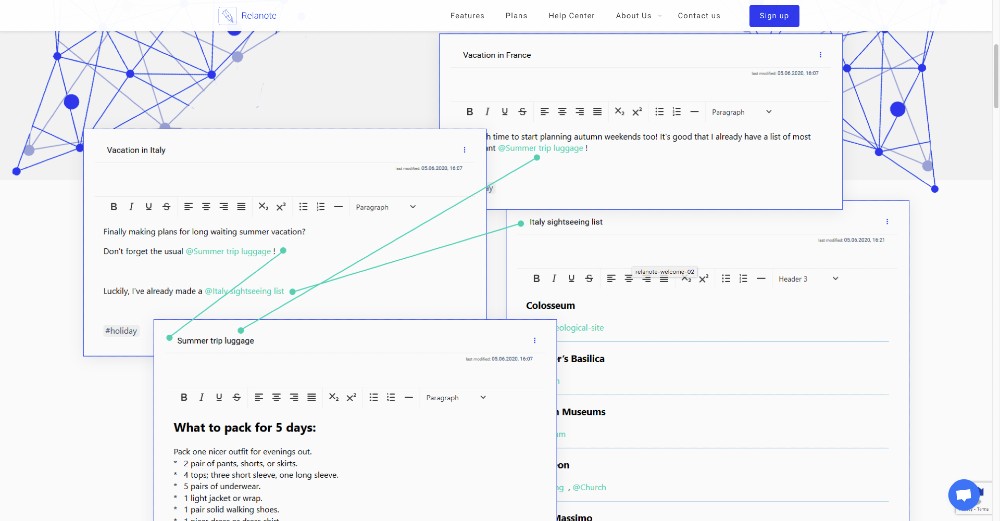In the real estate world, photos sell. Everyone loves a complete set of listing photos…
Buyers love previewing homes on their phones and computers.
Sellers generally want their home to have maximum exposure to as many websites, agents, and potential buyers as possible.
The loss of privacy is often overlooked in the excitement of the moment. I live and work in California. Your state may vary slightly, but if you are a public recording state like CA, this advice should transfer.
Sellers, Buyers & Listing Photos
We’ll discuss the following:
- How do real estate listing photos get to the internet?
- What a seller agrees to about photos and online photos.
- Disclosures about online privacy/photos that a buyer may see.
- What a buyer/seller typically agree to in their purchase contract.
- What rules govern photo and info display on websites?
- What happens to listing pictures when the home is sold?
- What can you do?
How do real estate listing photos get to the Internet?
Typically:
- The seller signs a listing agreement.
- The broker uploads photos into the local MLS (Multiple Listing Service) and makes a representation about ownership and licensing/distribution that is authorized by the listing agreement or other document. Sellers can opt out of this but typically don’t.
- The local MLS distributes the listing compilation (photos, info) to brokers. Sellers can opt out of this but typically don’t.
- The local MLS distributes the listing compilation to third-party companies such as Zillow or syndication companies that, in turn, redistribute the listings to a wide variety of real estate websites. Other feeds go to individual agents or some brokerage websites at a fee. Sellers can opt out of this but typically don’t.
- The local MLS is obligated to give a copy of the listing to realtor.com per a separate agreement.
What a seller agrees to about photos and online photos
Most listings in California use the CAR residential listing agreement, which clearly explains what the seller is agreeing to, who owns the images, and what control a broker has (none) after those images are entered into the MLS and syndicated to third party sites. Here are relevant excerpts:
CAR Residential Listing Agreement
PHOTOGRAPHS AND INTERNET ADVERTISING:
A. Seller agrees (or if checked___, does not agree) that Broker may photograph or otherwise electronically capture images of the exterior and interior of the Property (“Images”) for static and/or virtual tours of the Property by buyers and others for use on Broker’s website, the MLS, and other marketing materials and sites. Seller acknowledges that once Images are placed on the Internet neither Broker nor Seller has control over who can view such Images and what use viewers may make of the Images, or how long such Images may remain available on the Internet. Seller further assigns any rights in all Images to the Broker and agrees that such Images are the property of Broker and that Broker may use such Images for advertising, including post sale and for Broker’s business in the future.
B. Seller acknowledges that prospective buyers and/or other persons coming onto the property may take photographs, videos or other images of the property. Seller understands that Broker does not have the ability to control or block the taking and use of Images by any such persons….Seller acknowledges that unauthorized persons may take images who do not have access to or have not read any limiting instruction in the MLS or who take images regardless of any limiting instruction in the MLS. Once Images are taken and/or put into electronic display on the Internet or otherwise, neither Broker nor Seller has control over who views such Images nor what use viewers may make of the Images.
Disclosures about online privacy/photos that a buyer may see:
CA Statewide Buyer and Seller Advisory (approx 13,650 words over 14 pages of dense text):
Page 13 of 14:
…Buyer and Seller are advised that Broker has no control over how long the information or photos concerning the Property will be available on the Internet or through social media, and Broker will not be responsible for removing any such content from the internet or MLS. Brokers do not have expertise in this area.
CA Buyer Representation Agreement – Exclusive (rarely used in SF)
INTERNET ADVERTISING; INTERNET BLOGS; SOCIAL MEDIA: Buyer acknowledges and agrees that: (i) properties presented to them may have been marketed through a “virtual tour” on the Internet, permitting potential buyers to view properties over the Internet, or that the properties may have been the subject of comments or opinions of value by others on Internet blogs or other social media sites; (ii) neither the service provider(s) nor Broker has control over who will obtain access to such services or what action such persons might take; and (iii) Broker has no control over how long the information concerning the properties will be available on the Internet or social media sites.
CA Buyer Representation Agreement – Non-Exclusive
INTERNET ADVERTISING: Buyer acknowledges and agrees that: (i) properties presented to them may have been marketed through a “virtual tour” or the Internet, permitting potential buyers to view properties over the Internet; (ii) neither the service provider nor Broker has control over who will obtain access to the service or what action such persons might take; and (iii) Broker has no control over how long the information concerning the properties will be available on the Internet.
I could not find any language in the CA Buyer Representation Agreement – Non-Exclusive/Not for Compensation with regard to this issue.
What a buyer/seller typically agree to in a Purchase Contract
Most purchase agreements used in California have language saying the buyer and seller expressly agree that the sale and associated information are to be reported to the MLS.
The Parties hereby grant to the San Francisco Association of REALTORS® Multiple Listing Service (“MLS”) the right to publish and disseminate the sales price, terms of this Contract and other information about the Property and authorize their respective Brokers/Agents to submit such information under the applicable MLS rules.
— San Francisco Purchase Agreement
Brokers are authorized to report to the MLS a pending sale and, upon Close Of Escrow, the sales price and other terms of this transaction shall be provided to the MLS to be published and disseminated to persons and entities authorized to use the information on terms approved by the MLS.
— CAR Residential Purchase Agreement
Whose rules govern online photo display?
Brokers/Agents
Three entities make the rules about what agents and brokers can display on their websites:
-
- The local association (in our case, the San Francisco Association of Realtors/SFAR)
- The state association (California Association of Realtors/CAR)
- National Association of Realtors (NAR).
Most state associations have adopted NAR’s model MLS rules in order to obtain liability insurance through NAR, and local associations adopt their own rules in line with the state and national model rules in order to also have access to the same liability coverage. To mix several metaphors: That’s the carrot that keeps this herd of real estate cats vaguely glued together.
Local SFAR rules stipulate that:
SFAR MLS Rules/Regulations 2018
…By submitting photographs to the MLS, the Participant and/or Subscriber represents and warrants that it either owns the right to reproduce and display these photographs or has procured such rights from the appropriate party, and has the authority to grant and hereby grants the MLS and the other Participants and Subscribers the right to reproduce and display the photographs in accordance with these rules and regulations.
Zillow, Trulia & other 3rd party websites
The use of photos by private companies is governed by their licensing agreement with the entity that provided the photos, as well as any other site-specific privacy or user policies. In general, if a third-party website — such as Zillow, Yahoo, realtor.com, Facebook, or any other non-broker/agent website with real estate listings — is getting a legitimate data-feed, they are also getting a perpetual license to display/use the images. As I said, privacy policies vary widely, so I’m not going to post them all here.
What happens to the listing when the sale closes?
The real estate industry spent years resisting the publishing of sales data on the internet, but in 2018 NAR updated its policy to prevent state or local associations from blocking brokers or agents from displaying historical sales data going back to the arbitrarily chosen date of January 1, 2012*. When a sale closes, an agent typically has 1- 3 days to report the closed sale to the MLS with sales price and other terms of the sale.
*California is a public records state for real estate transactions. Some states (Texas, for example) record real estate transactions privately, and information about the sale is not available in the public record. The NAR policy says that if you are in a public records state, you can’t be prevented from displaying sold data, but in states like Texas where real estate sales aren’t public record, the NAR policy doesn’t apply and sold data can continue to be withheld from display.
And that’s what happens. When the sale closes, the pictures all remain and the listing is updated with the sales price. The entire property used to be removed from the IDX feed, but now it no longer typically is. Same thing with third-party websites.
What can you do?
There’s no official place to go for requesting removal of photos. Usually, the brokers you worked with or the local MLS where your property is listed are the best places to start.
After the sale has closed:
-
-
- Contact the local MLS and request removal of the public display of your home’s interior photos.
- Ask the MLS if this change will remove them from the IDX/broker feed or if additional calls are necessary?
- Contact brokerages/agents that have your sold data displayed and make the same request.
- Contact 3rd party sites like Zillow, Trulia, etc. and claim the home as an owner and then request removal of photos.
- Want exterior photos removed? Be sure to request that. You can also have your home’s exterior obscured on google maps.
-
The painful tip we don’t want to share, but… before the sale has closed:
I hate to share this tip because it devalues the MLS for all participants using it for comparable sales valuations – but here’s the trick… When in contract, but before the close of escrow ask the listing agent to remove all of the photos with the exception of an exterior (generally required by MLS rules).
Again, removing interior photos (which do the best job of portraying overall condition/layout) dramatically hurts the value of the MLS. However, it vastly reduces the number of sites you need to contact after closing to remove property photos.
In summary
Rare is the house listed for sale that no longer is immediately published all over the internet. Sellers grant their brokers the right to take and publish photos. Brokers publish those photos primarily in their local MLS, which then distributes them to a number of brokerage and agent websites, as well as 3rd party real estate websites.
The public display of sold data means interior home photos are likely to linger on the internet forever unless an owner actively requests their removal.
Removal of photos is subject to a variety of policies, but most companies tend to cooperate. If you’d like your photos removed, the best place to start is with the brokers involved in your transaction prior to the close of the purchase.
Matt Fuller brings decades of experience and industry leadership as co-founder of San Francisco real estate brokerage Jackson Fuller Real Estate. Matt is a Past President of the San Francisco Association of Realtors. He currently serves as a Director for the California Association of Realtors. He currently co-hosts the San Francisco real estate podcast Escrow Out Loud. A recognized SF real estate expert, Matt has made numerous media appearances and published in a variety of media outlets. He’s a father, husband, dog-lover, and crazy exercise enthusiast. When he’s not at work you’re likely to find him at the gym or with his family.














































